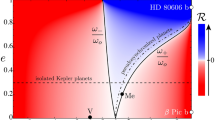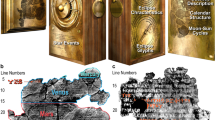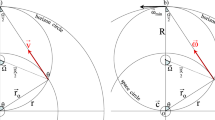Abstract
DESPITE the immensity of his achievement, Newton had scarcely done more than pose the problem of explaining the observed behaviour of the solar system in terms of his laws of motion and the inverse square law of gravitation. Until the full complexities of the observed behaviour of the planets and their satelltes had been shown to be deducible frome the Newtonian laws, philosophers might (and somethimes did) doubt whether gravitation alone was a sufficient principle of explanation in celestial mechanics. The task of completing the Newtonian celestial mechanics was largely carried out in the century after Newton's death by French mathematicians, and above all by Laplace.
This is a preview of subscription content, access via your institution
Access options
Subscribe to this journal
Receive 51 print issues and online access
$199.00 per year
only $3.90 per issue
Buy this article
- Purchase on Springer Link
- Instant access to full article PDF
Prices may be subject to local taxes which are calculated during checkout
Similar content being viewed by others
References
Grant, Robert, "History of Physical Astronomy", 106 (London, 1852).
For example, "Pantalogia, A New Cyclopædia" (London, 1813), article "Astronomy", cols. 13–14. I merely cite an example which happens to be on my shelves at the moment of writing.
Author information
Authors and Affiliations
Rights and permissions
About this article
Cite this article
LILLEY, S. Pierre Simon Laplace (1749–1827). Nature 163, 468–469 (1949). https://doi.org/10.1038/163468a0
Issue Date:
DOI: https://doi.org/10.1038/163468a0
Comments
By submitting a comment you agree to abide by our Terms and Community Guidelines. If you find something abusive or that does not comply with our terms or guidelines please flag it as inappropriate.



